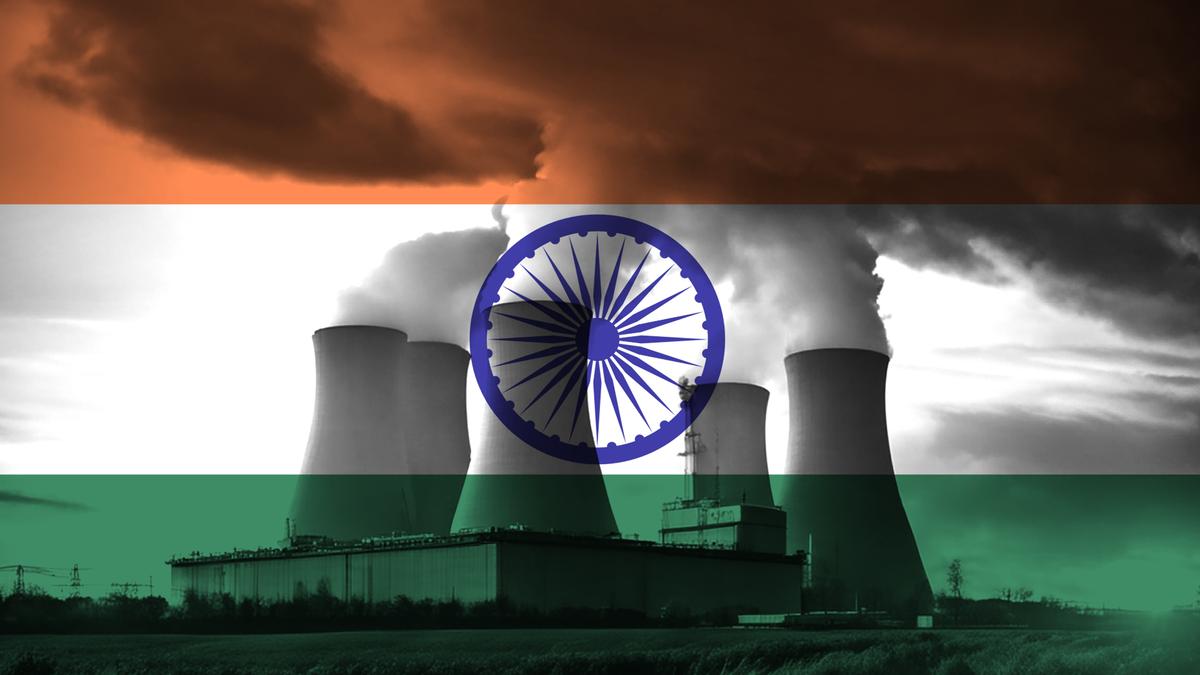Political parties in India, especially the Opposition, will soon need to take a view on a critical subject with a bearing on the country’s energy security and climate change mitigation. The proposal to amend the Civil Liability for Nuclear Damages Act (CLNDA), 2010, and the Atomic Energy Act (AEA), 1962 — which in the past witnessed intense debate — sooner or later, is expected to come up in Parliament.
With the Bharatiya Janata Party (BJP)-led National Democratic Alliance government indicating its intention to introduce it during the monsoon session, Parliament will revisit the issue whenever the Bills are introduced.
The plan is to amend the CLNDA and the AEA to address the vexatious issue of liability on the suppliers of equipment and permit private parties in the field of nuclear energy, respectively.
The India-U.S. Civil Nuclear Agreement and the enactment of the CLNDA led to a series of standoffs between the Congress-led United Progressive Alliance government and Opposition parties — the BJP and the Left parties led by CPI(M).
Historical context
Fifteen years ago, the government introduced a Bill to write laws for compensation to the people for nuclear accidents, as India was not a party to any of the existing conventions. Parliament was engaged in a lengthy debate, as the government preferred the passage of liability along the lines of international covenants.
Lack of requisite strength in the Rajya Sabha, dreadful memories of the suffering of people from the 1984 Bhopal gas leak, the Gulf of Mexico oil spill, and the damage to the nuclear reactor at Fukushima, Japan, following an earthquake, provided the backdrop. Sensing an opportunity, the combined opposition pressed to raise the compensation bar on suppliers of nuclear reactor equipment and beyond the immediate compensation liability on the operator. The insertion of the clause rendered the Act dead on arrival. Western country equipment suppliers shied away. An attempt to tweak it a decade ago made little difference, and international response remains lukewarm.
In 2007, during the debate around the nuclear deal, questions were raised about whether it was considering amending the AEA, allowing private sector participation. The government then noted that the 1997 report of the Dr. Raja Ramanna Committee had been examined, and a review of the Act had been under consideration since then. Now both issues are scheduled to return on Parliament’s agenda.
Raising concerns
In February this year, the Congress raised objections to the announcement to amend the Acts. It said the move dilutes accountability of suppliers, raises domestic risk, and protects equipment suppliers, reflecting the Convention on Supplementary Compensation, compromising the citizens’ safety, and leaning in favour of international corporations. The party also alleged that the move was intended to appease foreign interests, particularly France and the U.S., ahead of Prime Minister Narendra Modi’s visit.
Back in 2010, then-Prime Minister Manmohan Singh stated that the process for compensation for nuclear accidents began in 1999, and such a law was needed. The government then dismissed claims that the proposed law was timed with a visit by President Barack Obama.
Now, the central issue is whether the Congress will take a studied stance on the proposed legislation. There is a serious debate taking place outside on the move to build small modular reactors, with many countries vying to have a piece of the pie. The contribution of energy from nuclear power is estimated to be slightly over 3% of the total power generation. At the end of last year, the installed capacity of 24 nuclear power plants stood at 8.8 GW, the government informed Parliament. This was when the country set a target of 10 GW by the year 2000. The government now aims for 22.48 GW by 2031-32 and an ambitious 100 GW by 2047.
In the past, the Opposition took an about-turn on three key issues. At the turn of the century, opposition led to a delay in enacting an amendment to the Patents Act, 1970. Eventually, after a change of sides, the Opposition’s support resulted in the mandatory amendment. A decade ago, on two other contentious issues, the Opposition stalled laws, one on insurance law to raise the foreign direct investment ceiling, and the ratification of the exchange of enclaves with Bangladesh under the Land Border Agreement. Finally, these proposed laws were enacted with the then-Opposition offering support, with minor or no concessions. Leaders across the aisle walked together to arrive at an agreed position as the governments of the day worked, in their assessment, to further the national interest.
Need for a debate
Today, the NDA government does not have to look across the aisle for support.
The current issues have long-term implications, and there is a need for a well-rounded discussion that takes into account all factors around nuclear energy, the shift towards small modular reactors, the larger question of disposal of nuclear waste, and allied subjects. The Opposition should play a leading role in initiating this discussion and decide accordingly.
Otherwise, during a debate on a contentious issue two decades ago, a member on the Treasury Benches remarked to another member of the Opposition that a change of sides should not result in a change of stand.
K. V. Prasad is a senior Delhi-based journalist and authored a book Indian Parliament Shaping Foreign Policy
Published – August 21, 2025 01:27 am IST
